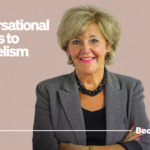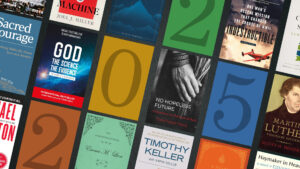Mother’s Day. Few holidays can rival it for emotional highs and lows. As a child, I loved it. My dad would “cook” breakfast with us (or run to McDonald’s to buy pancakes), and we would “surprise” my mother with breakfast in bed. One year, my brother and I gave Mom a Folgers coffee can full of worms . . . on the same tray as her breakfast . . . in bed. She was genuinely ecstatic—she wanted more worms to put in her garden. Mother’s Day was full of love and happy memories.
When I became a mom, I delivered our firstborn the day before Mother’s Day. The entire staff of doctors and nurses rejoiced, and my food tray came with a rose on it. It felt like the whole world was celebrating with me.
When Mother’s Day Hurts
But Mother’s Day isn’t a celebration for all. It’s excruciating for many: my friend who lost a child this year, another friend who’s celebrating her last Mother’s Day with her dying mom, my friends who would love to be mothers but aren’t, my friends who’ve had abusive moms, my friends whose adult children are estranged. These situations are extremely difficult, and Mother’s Day can serve to only intensify the pain.
How, then, should we treat Mother’s Day? Churches, pastors, friends, and families struggle with this question every year. Do we ignore those hurting and go on celebrating? Do we suppress the celebration in hopes of lessening the pain around us? It might help to ask a deeper question: Should we be surprised that such intense joy and sorrow are wrapped up in motherhood?
It wouldn’t surprise us if we knew our story.
Motherhood in the Metanarrative
God’s first recorded words to Adam and Eve implied motherhood: “Be fruitful and multiply” (Gen 1:28). Motherhood was part of Eden, and it should have been an experience of pure joy.
But after the couple sinned, God pronounced the consequences of their rebellion. To Eve he said, “I will surely multiply your pain in childbearing; in pain you shall bring forth children” (Gen. 3:16). This pain goes beyond the physical pain of childbirth—it includes everything painful about childbearing and motherhood: miscarriage, infertility, SIDS, abortion, rebellious children . . . the list could go on and on.
But we don’t stop reading at Genesis 3:16—the story continues. Four verse later we read, “The man called his wife’s name Eve, because she was the mother of all living” (Gen. 3:20). In spite of the curse, life would come, and redemption would come through life. The first thing that happens after Adam and Eve are expelled from Eden is a birth—God’s mercy in the midst of his curse.
Eventually, Christ himself would come, “born of woman,” to bring salvation to his people and break the curse (Gal. 4:4; cf. Gen. 3:15). Until the final redemption of all things, however, the effects of the curse are still with us. Motherhood continues to be a mixture of great joy and tremendous pain. We live in a time that requires us to mourn over all that is broken and, at the same time, rejoice over what is good and right.
On this Mother’s Day, weep for yourself and for those you love who mourn over infertility, miscarriages, abortions, wayward children, and other consequences of the curse. At the same time, rejoice for everything good and right in motherhood that shines as a testimony to God’s goodness, mercy, and redemption. Celebrate life, extol the praiseworthy deeds of the moms around you, and praise God that he will one day, finally and fully, set everything to rights and wipe every tear from our eyes.
Editors’ note: This article appeared at enCourage.
Download your free Christmas playlist by TGC editor Brett McCracken!
 It’s that time of year, when the world falls in love—with Christmas music! If you’re ready to immerse yourself in the sounds of the season, we’ve got a brand-new playlist for you. The Gospel Coalition’s free 2025 Christmas playlist is full of joyful, festive, and nostalgic songs to help you celebrate the sweetness of this sacred season.
It’s that time of year, when the world falls in love—with Christmas music! If you’re ready to immerse yourself in the sounds of the season, we’ve got a brand-new playlist for you. The Gospel Coalition’s free 2025 Christmas playlist is full of joyful, festive, and nostalgic songs to help you celebrate the sweetness of this sacred season.
The 75 songs on this playlist are all recordings from at least 20 years ago—most of them from further back in the 1950s and 1960s. Each song has been thoughtfully selected by TGC Arts & Culture Editor Brett McCracken to cultivate a fun but meaningful mix of vintage Christmas vibes.
To start listening to this free resource, simply click below to receive your link to the private playlist on Spotify or Apple Music.


































